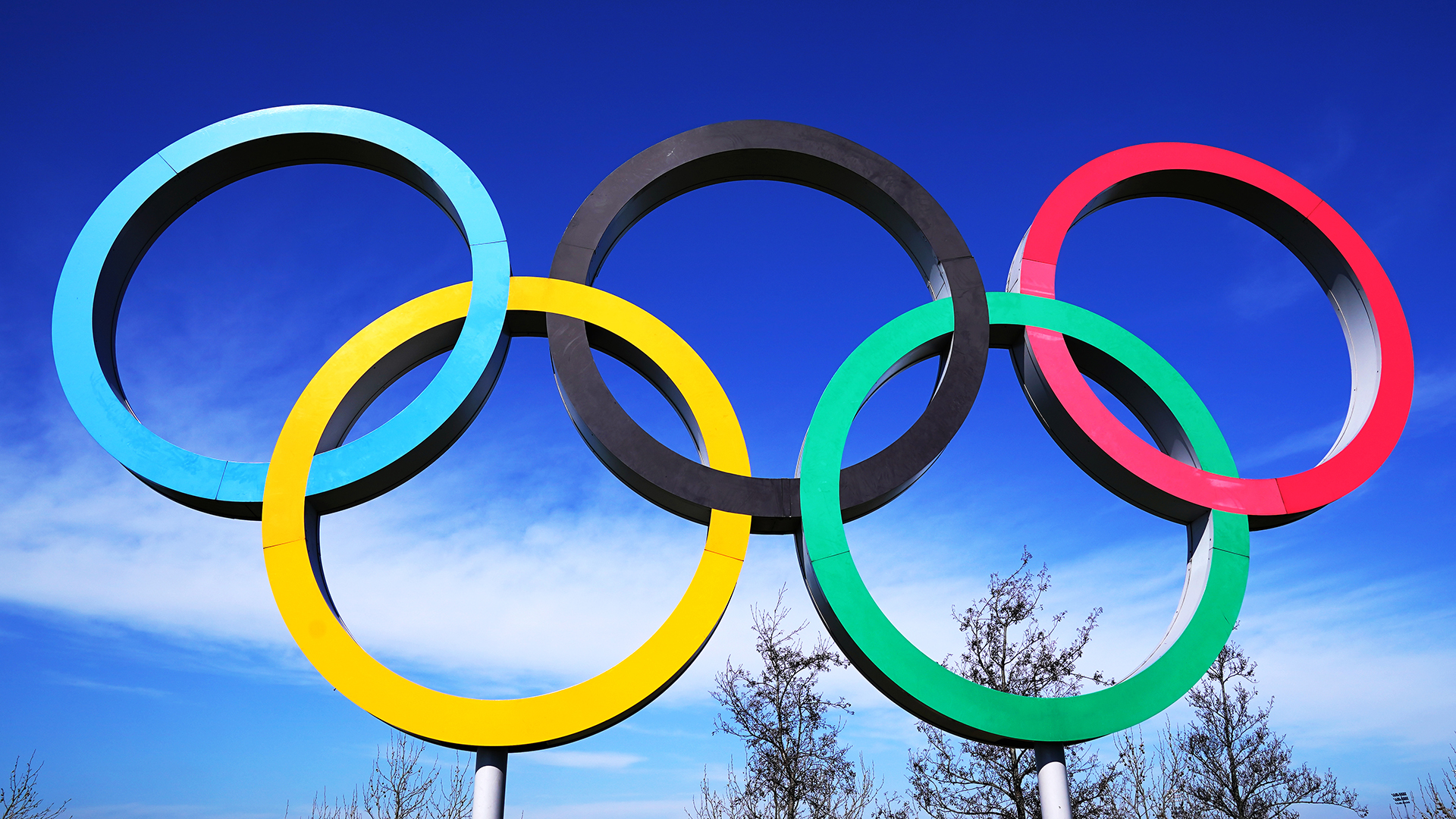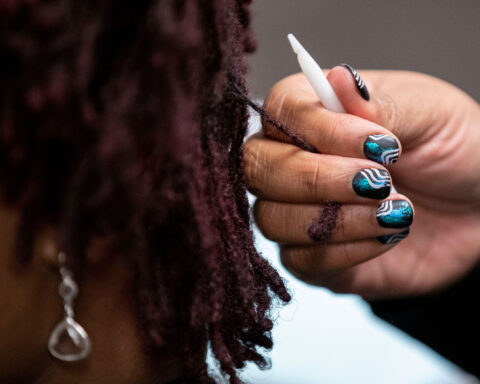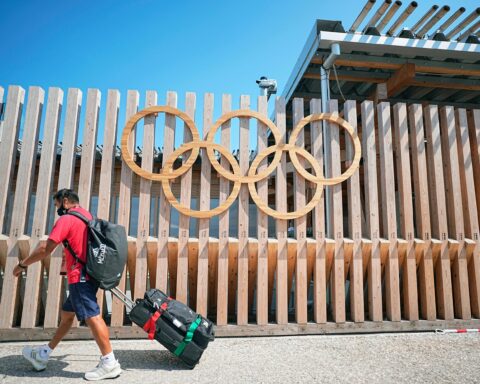Oonagh Cousins was training up to 35 hours a week after she was picked for the British rowing team for the Tokyo Olympics, despite contracting Covid-19 in February 2020.
The 26-year-old from Surrey experienced a mild case of the disease, so she felt able to make a quick return to training. But she thinks that the intense exercise may have exacerbated the virus, adding that “it ended up developing into really bad long Covid,” forcing her out of the Olympic team.
“At its worst, for a couple of months, I would say I really struggled to get out of bed at all,” Cousins said. “Getting out of bed to make breakfast was a huge mountain to climb.”
She said even now, the “intense fatigue” only allows her to carry out a few hours of normal activity per day.
“I’m really struggling to exercise still,” Cousins said. “Now, I can probably do three 20-minute sessions in a week, super lightly.”
Now, she wants to warn other young athletes — especially those flying into Tokyo for the delayed Games — to take Covid-19 seriously.
“People who are young and healthy, who exercise, they don’t think they’re going to get it,” Cousins said. “It’s important that whoever gets the virus, just be really careful.”
Her road to recovery is still ongoing, but her Olympic dreams for Tokyo are over.
READ: Tokyo 2020 Olympic bubble system is ‘kind of broken,’ says public health expert
“I found it really difficult, I was really upset,” she said about dropping out of the Games. “I gave myself the space to process it, allowed myself to grieve basically.”
Cousins is hoping to get back on form ready to compete at the Paris Olympics in 2024.
‘I’m in mourning’
But for other athletes, Tokyo was their last chance at an Olympic medal.
Priscilla Loomis, a high jumper from the US who competed at the Rio Olympics in 2016, was hoping to represent Antigua and Barbuda in Tokyo due to her dual citizenship.
But a bad case of Covid-19 derailed her chances and she failed to qualify.
“(I’m) absolutely devastated,” Loomis said. “I’m heartbroken. (I’m) healing right now. I’m in mourning.”
She suffered chest pains and breathing difficulties and had to miss eight weeks of training. Her doctor even advised her to abandon her Olympic bid, because of the potential long-term damage to her heart and lungs. But she kept going.
“All I could think about was, I need to get ready for the Olympics, I need to get ready for the Olympics,” Loomis said. “And so it kind of completely turned my world upside down.”
And at 32, she said she can’t keep training at this level — or funding the support required — for another four years.
“This was my final (chance),” she said. “There’s no way I can afford the coaches and the doctors and as you get older, all these random things hurt when I wake up now.”
READ: Mark Spitz — Seven ways to survive the Olympic Games
Long Covid, also called post-Covid syndrome, is shaping up to be a major, long-term public health issue.
In the UK alone, almost 700,000 people reported having symptoms for at least three months after getting infected with Covid-19, according to a survey done by the UK Office for National Statistics in March.
A majority of the 700,000 said their illness was limiting their day-to-day activities and for almost 70,000, the symptoms have lasted for more than a year.
A separate study published in April showed that seven in 10 people who had been hospitalized for Covid-19 have not fully recovered five months after being discharged.
CNN’s Chief Medical Correspondent, Dr. Sanjay Gupta, says researchers don’t fully know why the virus hits some people harder than others.
“We are dealing with a disease that we didn’t even know how to define a year ago,” Dr. Gupta said.
“So if you’re an athlete, you could have symptoms from Covid that last a long time,” he added. “And really impact your performance for a long time as well.”
Restarting from scratch
Some athletes who had the virus have managed to make a full recovery and are heading to Tokyo for the Games.
Vinesh Phogat, a champion wrestler from India, contracted Covid-19 in August 2020.
“I was really shocked about how I caught it, because I never left the house,” Phogat said. “I was never in contact with anyone and I was staying at home and training.”
The 26-year-old recovered without a problem, but the loss of training time — combined with the year-long delay to the Games — set her schedule back.
“When I had Covid for that one month it ended everything I had been training for,” she said. “I had to restart my training from scratch.”
Phogat also said she faced huge personal anxiety after her whole family got Covid-19 a few months ago in India, during the huge outbreak there. She was training in Ukraine at the time.
“Everyone tested positive for Covid then and the situation in India was such that the hospitals were full,” she said. “If I was in India, maybe I could have contacted people and taken care of them. My biggest worry was that I wasn’t with them.”
Phogat would call them between seven and 10 times every day to check their condition.
“Because my family belongs to a village, they need reminders of which tablets to take and what to do or not to do,” she said.
“I was worried because my family has a lot of children and my mother is prone to illnesses, so I was worried about the situation worsening.”
Luckily, they all made a full recovery, so the wrestler is now fully focused on a successful Olympics — and is going into the event as a favorite in her 53kg weight category.
At the Rio Olympics, Phogat was stretchered off after a severe knee injury, so this time she is gunning for a medal and she feels lucky that she is able to compete given the global pandemic.
“It’s difficult, but it’s actually also a pleasure that even in such a situation, we can still play at the Olympics and all us athletes can make our countries proud,” Phogat said. “We can show the world that all of us can come together.
“Covid has made everyone really tense and they have had to stay at home, so they will get a chance to see the Olympics and the heroes of the world.”






